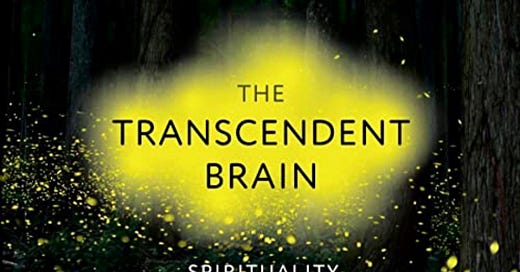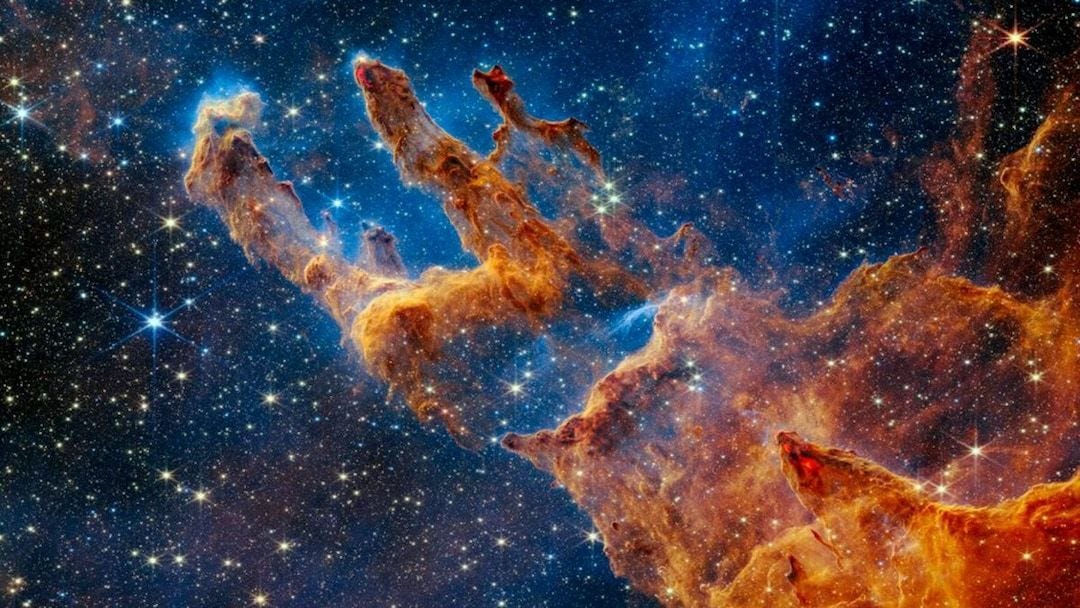Transcendental
An exploration of Alan Lightman's book The Transcendent Brain: Spirituality in the Age of Science
Science and religion/spirituality are the two most powerful forces that have shaped human civilization. Neither is going away.
Spirituality, a personal and subjective aspect of human existence, has captivated individuals for centuries. It is a concept that extends beyond traditional religious beliefs and delves into the metaphysical and transcendental realms. Alan Lightman's book The Transcendent Brain: Spirituality in the Age of Science explores the connection between spirituality and science from a poetic physicist's point of view.
Skeptics may question the compatibility of science and spirituality, citing the objective nature of science versus the subjective nature of spirituality. Alan Lightman's book disputes the opposition of spirituality and science. His argument is that both spheres aim to unravel the secrets of the universe, albeit with different approaches.
Science, the compass in our quest for truth, leads us to the shores of understanding, where spirituality awaits as a lighthouse guiding us through uncharted waters.
While Lightman presents the natural world's marvels, some argue that science can explain them all, dismissing spirituality. Some may argue that attributing wonder to the divine is an unnecessary assumption. Science relies on empirical evidence and logical reasoning. Spirituality explores emotions, intuition, and personal experiences. Lightman suggests that pursuing knowledge through the scientific method can deepen our spiritual connection with the universe.
Spirituality is the wellspring of our deepest values and our noblest aspirations, transcending the boundaries of culture, religion, and time. It is the flame that ignites our curiosity and fuels our search for meaning.
[…]
Science, like spirituality, is an exploration, a quest for truth. It unveils the mysteries of the universe, unraveling the tapestry of existence, and offering glimpses of the divine.
Lightman's approach is refreshing because he aims to connect these different realms, fostering dialogue and deepening our understanding of the human experience.
One of the key themes in The Transcendent Brain is exploring consciousness and its connection to spirituality.
Consciousness, that ethereal thread that weaves the tapestry of our existence, may hold the key to understanding the spiritual dimensions of reality. It is through consciousness that we transcend the boundaries of the material world, embarking on a journey into the realm of the ineffable.
Lightman discusses scientific theories and research on the brain and its functions, while recognizing science's limitations in explaining human consciousness. He asserts that neurological processes alone cannot explain aspects of consciousness, and he emphasizes a deeper spiritual aspect of human existence. In a time of scientific progress and technological advancements, he acknowledges we can overlook or deem spirituality irrelevant. He contends that spirituality is crucial in this era of science.
Science, for all its brilliance, can only shed light on the physical realm, leaving the spiritual realm shrouded in mystery. It is through embracing both science and spirituality that we can navigate the intricacies of our existence.
His poetic background enhances Lightman's exploration of spirituality. By blending scientific explanations and lyrical prose, he creates a harmonious fusion of logic and emotion. He uses poetic language to encourage readers to ponder the universe's mysteries and profound spiritual questions.
In the vast tapestry of the cosmos, we are but stardust, particles formed in the crucible of exploding stars. We are connected to the very fabric of the universe, intricately woven into its grand design.
Lightman's approach highlights the beauty of blending rationality and intuition for a complete spiritual understanding.
The Transcendent Brain also explores how spirituality contributes to discovering meaning and purpose in life. Lightman claims that science alone cannot answer questions about purpose and the human condition. According to him, spirituality provides a framework for finding solace, meaning, and connection to something beyond oneself. Lightman's perspective prompts readers to delve into their spirituality, whether through religion, meditation, or other contemplative practices.
Some critics claim that spirituality establishes a link to a higher power or religious framework. Lightman disputes the idea of religious beliefs limiting spirituality, instead arguing it is a personal encounter that exists in different facets of life, like art, nature, and human connections. He urges readers to foster wonder and awe in their daily lives, acknowledging the possibility of spiritual encounters in ordinary moments.
Spirituality, like a gentle breeze, whispers to us from the depths of our being, guiding us on a journey of self-discovery and connecting us to something greater than ourselves.
A thought-provoking exploration of spirituality, The Transcendent Brain also challenges the boundaries of scientific inquiry. Lightman recognizes the significant strides science has taken in understanding the universe, but warns against disregarding the spiritual realm as mere superstition or fantasy. He emphasizes the unexplainable aspects of human existence and the unique perspective spirituality provides in exploring them.
Lightman’s exploration of the intersection between spirituality and science has practical implications in our daily lives. We can develop a complete understanding of the world by embracing both realms, finding meaning in science and nurturing our spirituality. This integration fosters a sense of wonder, promoting compassion, empathy, and a deeper connection with nature.
Alan Lightman's book explores spirituality in a thought-provoking way, challenging conventional beliefs and promoting a holistic understanding of the human experience. Lightman's poetic style and his effort to connect science and spirituality make this book a valuable addition to the ongoing conversation on spirituality. Lightman's words emphasize the importance of integrating spirituality and science for a deeper comprehension of the universe and our place in it.
If you could tag each of the atoms in your body and follow them backward in time, through the air that you breathed during your life, through the food that you ate, back through the geological history of the Earth, through the ancient seas and soil, back to the formation of the Earth out of the solar nebular cloud, and then out into interstellar space, you could trace each of your atoms, those exact atoms, to particular massive stars in the past of our galaxy. At the end of their lifetimes, those stars exploded and spewed out their newly forged atoms into space, later to condense into planets and oceans and plants and your body at this moment.
[…]
The atoms in my body will remain, only they will be scattered about. Those atoms will not know where they came from, but they will have been mine. Some of them will once have been part of the memory of my mother dancing the bossa nova. Some will once have been part of the memory of the vinegary smell of my first apartment. Some will once have been part of my hand. If I could label each of my atoms at this moment, imprint each with my Social Security number, someone could follow them for the next thousand years as they floated in air, mixed with the soil, became parts of particular plants and trees, dissolved in the ocean, and then floated again to the air. And some will undoubtedly become parts of other people, particular people. So, we are literally connected to the stars, and we are literally connected to future generations of people. In this way, even in a material universe, we are connected to all things future and past.
Author’s Note
Alan Lightman is the author of 6 novels, several collections of essays, a memoir, and a book-length narrative poem, as well as several books on science.
Upcoming…
A story about discovering serenity:
Magical Encounters, 4 May 2024
Thanks very much for reading, subscribing, and sharing the stories, poetry, and essays in this space. If you like a story, poem, or essay, please click on the heart. Also if you are so moved, please leave a comment.








